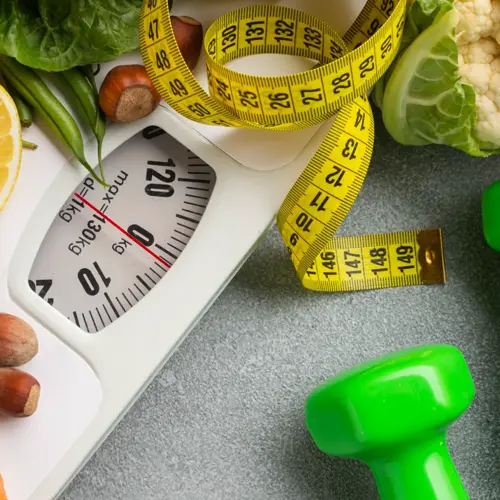Table of Contents
Post-surgery nutrition is a crucial aspect of the recovery process, as it plays a significant role in promoting faster healing and overall well-being.
Proper nutrition can help reduce inflammation, boost the immune system, and provide the necessary nutrients for tissue repair.
A well-balanced diet rich in protein, vitamins, and minerals is essential to support the body's healing process after surgery. In addition, staying hydrated can aid in the elimination of toxins and promote optimal recovery.
It is important to work closely with healthcare professionals to develop a personalized nutrition plan that meets the specific needs of the individual undergoing surgery.
By following best practices for post-surgery nutrition, patients can enhance their recovery and regain strength more quickly.
Importance of Post-Surgery Nutrition
Post-surgery nutrition plays a crucial role in the recovery process following a surgical procedure. Proper nutrition is essential for promoting healing, reducing the risk of complications, and enhancing overall recovery outcomes.
Here are some key points highlighting the importance of post-surgery nutrition: - **Nutrient Support**: After surgery, the body needs an adequate supply of nutrients to repair tissues, boost the immune system, and regain strength.
A balanced diet rich in proteins, vitamins, minerals, and antioxidants is important for optimal healing.
- Energy Levels: Surgery can significantly impact energy levels, and adequate nutrition is vital for replenishing energy stores and combating fatigue. Consuming enough calories from nutrient-dense foods is essential for maintaining energy levels during the recovery period.
- Immune Function: A well-nourished body has a stronger immune system, which is essential for fighting off infections and promoting faster healing after surgery. Including immune-boosting foods like fruits, vegetables, and lean proteins in the diet can help support the immune function.
- Wound Healing: Certain nutrients, such as vitamin C and zinc, play a critical role in wound healing. These nutrients help in collagen formation, tissue repair, and reducing inflammation, all of which are essential processes post-surgery.
- Preventing Complications: Proper nutrition can help reduce the risk of complications after surgery, such as infections, delayed wound healing, and muscle loss. By providing the body with the necessary nutrients, you can support the recovery process and minimize potential risks. Incorporating a well-rounded diet that meets the body's nutritional needs is crucial for ensuring a smooth and speedy recovery after surgery.
By paying attention to post-surgery nutrition, individuals can promote better healing, improve outcomes, and enhance overall well-being.
Hydration
Hydration is a crucial aspect of post-surgery nutrition that significantly influences the recovery process. Ensuring proper hydration levels is essential for various bodily functions, including tissue repair, wound healing, and toxin removal.
Adequate hydration helps maintain optimal blood flow and oxygen delivery to the surgical site, promoting faster recovery.
To maintain proper hydration levels post-surgery, it is recommended to consume sufficient water throughout the day.
Patients should aim to drink at least 8-10 glasses of water daily, or more if advised by their healthcare provider.
Apart from water, hydrating beverages such as herbal teas, coconut water, and electrolyte drinks can also be beneficial. In addition to fluid intake, consuming hydrating foods can also contribute to overall hydration.
Fruits and vegetables with high water content, such as watermelon, cucumber, and oranges, can help replenish fluids in the body. Including soups, broths, and watery foods in the diet can also aid in staying hydrated.
It is important to monitor urine color and frequency as indicators of hydration status. Clear or pale yellow urine usually indicates adequate hydration, while dark yellow urine may suggest dehydration.
Patients should consult their healthcare provider for personalized hydration recommendations based on their specific surgery and recovery needs.
Protein
Proteins are essential nutrients that play a crucial role in post-surgery nutrition for faster recovery. They are the building blocks of our body tissues, including muscles, skin, and organs.
Consuming an adequate amount of protein after surgery is important for wound healing, tissue repair, and overall recovery.
Proteins are made up of amino acids, which are needed for various bodily functions, such as immune response, enzyme production, and hormone regulation.
Including protein-rich foods in your post-surgery diet can promote healing and enhance your body's ability to bounce back from the stress of surgery.
Some sources of high-quality proteins include lean meats, poultry, fish, eggs, dairy products, legumes, nuts, and seeds. It's recommended to spread out protein intake throughout the day to support steady recovery and muscle rebuilding.
Incorporating protein shakes or smoothies can be a convenient way to increase protein intake, especially if you have a poor appetite or difficulty chewing solid foods post-surgery.
However, it's important to consult with your healthcare provider or a dietitian to determine the appropriate amount of protein you should be consuming based on your individual needs and recovery process.
Remember, protein is a crucial component of your post-surgery nutrition plan, so ensure you prioritize including it in your meals and snacks to support a faster and smoother recovery process.
Vitamin-Rich Foods
Proper nutrition plays a crucial role in post-surgery recovery as it aids in faster healing and overall well-being. Including vitamin-rich foods in your diet can further enhance the recovery process by providing essential nutrients that support tissue repair and immune function.
Incorporating a variety of fruits and vegetables high in vitamins A, C, and E can help boost your antioxidant intake, which is important for reducing inflammation and promoting healing.
Citrus fruits, strawberries, bell peppers, and leafy greens are great sources of these vitamins.
Additionally, foods rich in vitamin K such as spinach, kale, and broccoli can aid in blood clotting and bone health, which are crucial aspects of the recovery process after surgery.
Including sources of vitamin B, like whole grains, nuts, and seeds, can also support energy production and nerve function, helping you feel more energized during the healing process.
Mineral-Rich Foods
Post-surgery nutrition is crucial for promoting faster recovery, and incorporating mineral-rich foods into your diet can play a significant role in this process. Minerals are essential nutrients that support various bodily functions, including wound healing, immune system function, and muscle repair. By consuming a variety of mineral-rich foods, you can help your body heal and recover more efficiently after surgery.
Minerals such as zinc, iron, calcium, and magnesium are particularly beneficial for post-surgery recovery. Zinc helps boost immune function and aids in wound healing, while iron is essential for red blood cell production. Calcium and magnesium are important for bone health and muscle function.
Including mineral-rich foods in your post-surgery diet can be as simple as adding certain items to your meals or snacks. Some examples of mineral-rich foods include:
- Spinach: High in iron, magnesium, and calcium
- Almonds: Good source of magnesium and zinc
- Salmon: Rich in omega-3 fatty acids and calcium
- Yogurt: High in calcium and probiotics for gut health
- Lentils: Excellent source of iron and magnesium
By incorporating a variety of these mineral-rich foods into your diet, you can help support your body's recovery process and promote overall wellness post-surgery. Remember to consult with your healthcare provider or a registered dietitian for personalized nutrition recommendations tailored to your specific needs.
Avoiding Certain Foods
After undergoing surgery, proper nutrition plays a crucial role in promoting faster recovery and overall healing.
One important aspect of post-surgery nutrition is avoiding certain foods that can potentially hinder the healing process or cause complications.
Here are some best practices to consider when it comes to avoiding certain foods:
- Avoid processed and packaged foods that are high in added sugars, unhealthy fats, and preservatives. These foods can contribute to inflammation and may slow down the healing process.
- Avoid foods that are high in sodium, as excess sodium intake can lead to bloating, fluid retention, and increased blood pressure, which are all undesirable during the recovery period.
- Avoid spicy foods that may irritate the digestive system or cause discomfort, especially if you have undergone abdominal surgery.
- Avoid foods that are known to be common allergens, as you want to minimize the risk of any allergic reactions that could complicate your recovery.
- Limit the consumption of caffeine and alcohol, as these substances can interfere with the body's ability to heal and may also interact negatively with certain medications prescribed post-surgery.
Meal Timing
Meal timing is an important aspect of post-surgery nutrition that can significantly impact the recovery process.
After surgery, the body requires specific nutrients at strategic times to support healing and minimize complications. Here are some best practices for meal timing to promote faster recovery:
- Regular Schedule: Maintaining a consistent meal schedule can help regulate blood sugar levels and provide a steady supply of energy for the body's healing processes.
- Pre-Operative Fasting: Following the pre-operative fasting guidelines provided by the healthcare team is crucial to ensure a safe surgery and a smooth recovery.
- Early Post-Op Nutrition: In the immediate hours following surgery, starting with clear fluids and gradually transitioning to easily digestible foods can help kickstart the recovery process.
- Protein Intake: Including protein-rich foods in each meal can support tissue repair and help rebuild muscle mass that may have been lost during surgery.
- Hydration: Staying hydrated is essential for overall health and can aid in the recovery process. Aim to drink plenty of water throughout the day.
- Snacking: Having small, nutritious snacks between meals can help maintain energy levels and provide a constant supply of nutrients to support healing.
By following these meal timing best practices, individuals can optimize their post-surgery nutrition and support a faster recovery process.
Supplements
Supplements are an essential component of post-surgery nutrition to support faster recovery.
These products are designed to provide additional nutrients that may be lacking in a regular diet or to aid in the healing process after a surgical procedure.
Here are some best practices to consider when incorporating supplements into your post-surgery diet:
- Multivitamins: Taking a high-quality multivitamin can help ensure that you are getting all the essential vitamins and minerals necessary for optimal healing and recovery.
- Protein Supplements: Protein is crucial for tissue repair and muscle recovery. Consider incorporating protein shakes or bars into your daily routine to meet your protein needs.
- Omega-3 Fatty Acids: Omega-3 supplements can help reduce inflammation and promote overall healing. Fish oil supplements are a common source of omega-3 fatty acids.
- Probiotics: Surgery and medications can disrupt the natural balance of gut bacteria. Probiotic supplements can help restore gut health and aid in digestion.
- Vitamin D: Vitamin D is important for bone health and immune function. Consider supplementing with vitamin D to support overall well-being during the recovery period.
- Consult with a healthcare provider: Before starting any new supplement regimen, it is important to consult with your healthcare provider to ensure that the supplements are safe and appropriate for your individual needs.
By incorporating these supplements into your post-surgery nutrition plan, you can support your body's healing process and promote a faster recovery. Remember to prioritize whole foods and a balanced diet in addition to supplements for overall well-being.
Consulting with a Registered Dietitian
Consulting with a Registered Dietitian post-surgery is crucial to ensure proper nutrition for faster recovery.
A Registered Dietitian can provide personalized guidance and create a specialized nutrition plan based on the individual's needs and medical condition post-surgery.
They can assess the patient's nutritional status, identify any deficiencies, and recommend appropriate dietary changes or supplements.
During a consultation with a Registered Dietitian, the patient can discuss their dietary habits, preferences, and any challenges they may face in following a specific diet.
The dietitian can offer practical tips, meal ideas, and recipe suggestions to help the patient meet their nutritional goals. They can also address any concerns the patient may have regarding food choices, weight management, or digestive issues post-surgery.
By collaborating with a Registered Dietitian, patients can optimize their nutrient intake, promote healing, reduce the risk of complications, and support overall recovery.
Nutritional guidance from a professional can improve the patient's energy levels, support their immune system, and enhance the body's healing process.
Consulting with a Registered Dietitian is a proactive step towards a successful recovery post-surgery.
FAQ
What are the key nutrients needed for faster recovery after surgery?
Key nutrients essential for faster recovery after surgery include protein, vitamins (such as vitamin C and vitamin D), minerals (like iron and zinc), and omega-3 fatty acids. Protein is crucial for tissue repair and immune function, while vitamins and minerals help support the body's healing processes. Omega-3 fatty acids have anti-inflammatory properties that can aid in reducing inflammation post-surgery.
How does hydration play a role in post-surgery recovery?
Proper hydration is essential for post-surgery recovery as it helps maintain fluid balance, supports cellular function, and aids in the elimination of metabolic waste products. Dehydration can negatively impact healing and recovery by reducing blood flow, impairing wound healing, and increasing the risk of complications. It is important to drink adequate amounts of water and other fluids to support the body's healing processes.
What are some good sources of protein for post-surgery nutrition?
Good sources of protein for post-surgery nutrition include lean meats, poultry, fish, eggs, dairy products, legumes, nuts, and seeds. These foods provide essential amino acids necessary for tissue repair, immune function, and overall recovery. Including a variety of protein sources in the diet can help meet daily protein requirements after surgery.
Why is it important to include fruits and vegetables in post-surgery meals?
Fruits and vegetables are rich in vitamins, minerals, antioxidants, and fiber, all of which play a crucial role in supporting the immune system, reducing inflammation, and promoting overall healing post-surgery. Including a variety of colorful fruits and vegetables in post-surgery meals can help provide essential nutrients that support recovery and enhance overall well-being.
Is it necessary to supplement with vitamins and minerals after surgery?
In some cases, supplementation with vitamins and minerals may be necessary after surgery to meet increased nutrient needs, especially if certain deficiencies are present or if the body's ability to absorb nutrients is compromised. It is important to consult with a healthcare provider or a registered dietitian to determine if supplementation is necessary and to ensure appropriate dosages are recommended based on individual needs.
How can omega-3 fatty acids benefit post-surgery recovery?
Omega-3 fatty acids, found in fatty fish, flaxseeds, chia seeds, and walnuts, have anti-inflammatory properties that can help reduce inflammation, promote wound healing, and support overall recovery after surgery. Including sources of omega-3 fatty acids in the diet can help optimize the body's healing processes and reduce the risk of complications associated with excessive inflammation.
Are there any foods or beverages that should be avoided during post-surgery recovery?
During post-surgery recovery, it is important to avoid foods and beverages that may increase inflammation, impair wound healing, or cause digestive discomfort. These include processed foods high in sugar and unhealthy fats, excessive caffeine and alcohol, and foods that are difficult to digest such as spicy or greasy foods. It is best to focus on consuming nutrient-dense, whole foods that support healing and recovery.
How can meal timing and portion control impact post-surgery recovery?
Proper meal timing and portion control are important factors in post-surgery recovery as they can help optimize nutrient absorption, support energy levels, and prevent digestive issues. Eating regular meals and snacks throughout the day, spaced evenly, can help maintain stable blood sugar levels and provide a consistent source of nutrients for the body's healing processes. Portion control is also important to prevent overeating, which can lead to discomfort and interfere with recovery.



















